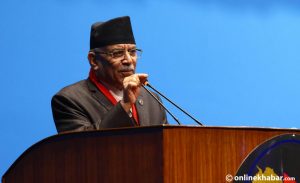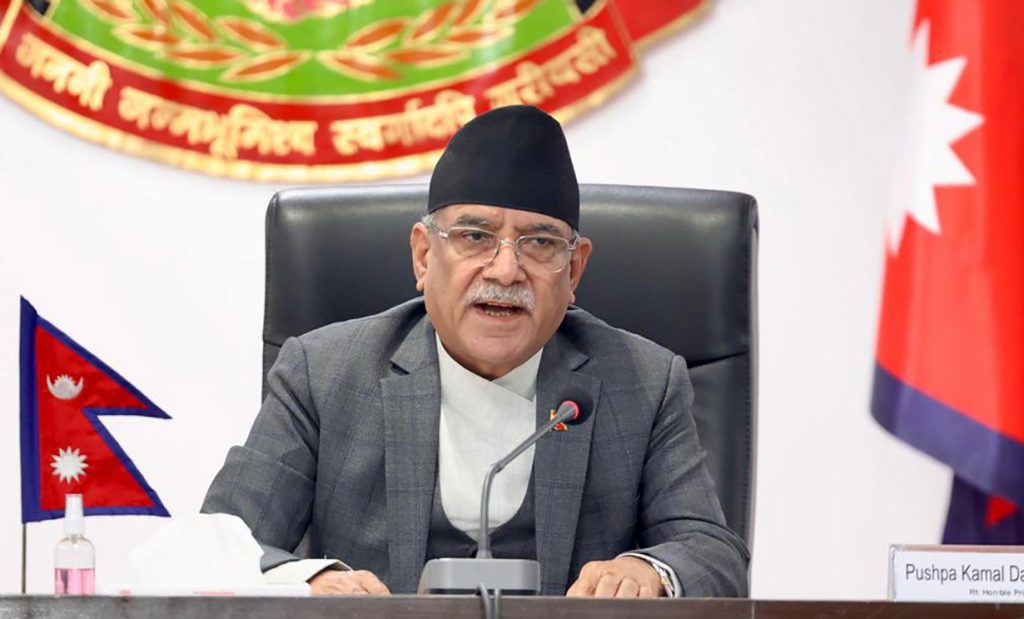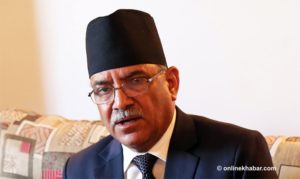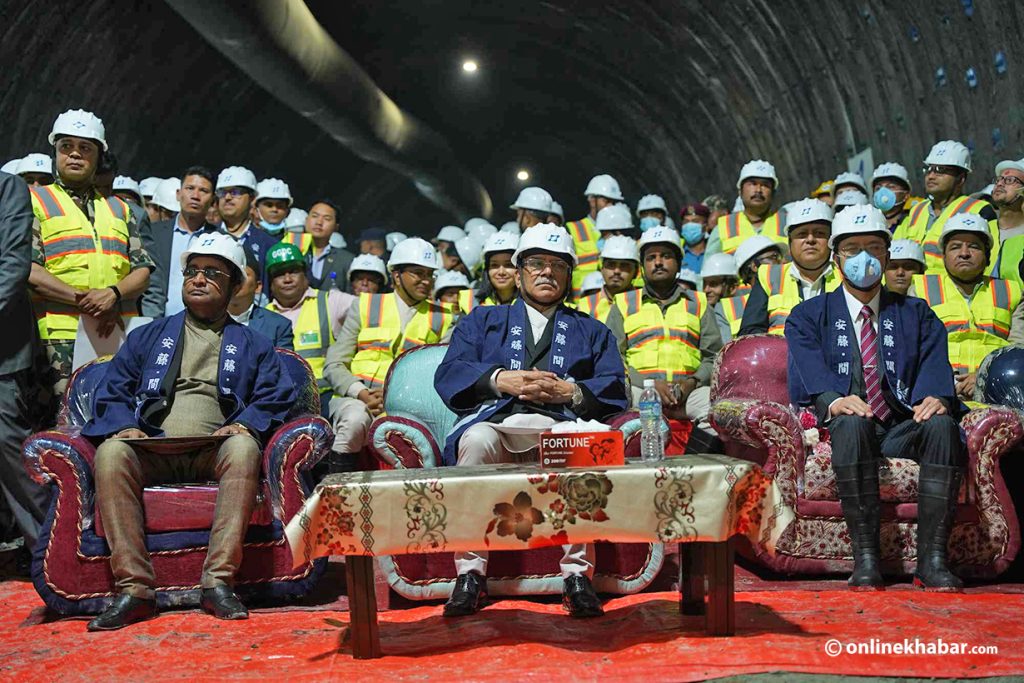
The 2006 Comprehensive Peace Accord (CPA) formally ended Nepal’s decade-long Maoist insurgency (1996-2006). As transitional justice mechanisms follow such a post-conflict scenario to properly address the cases of human rights violations that happen during the conflict with the aim to foster peace, two bodies were established to facilitate transitional justice in Nepal, namely the Truth and Reconciliation Commission (TRC) and Commission of Investigation on Enforced Disappeared Persons (CIEDP).
But 17 years down the line, promises of transitional justice in Nepal largely failed with almost all sides involved in the process dissatisfied. A recent lawsuit filed against Prime Minister Pushpa Kamal Dahal can be considered the epitome of dissatisfaction, which paints an uncertain picture of the future.
Transitional justice in Nepal: Principle and practice

According to the Office of the Nations High Commissioner for Human Rights (OHCHR), “Transitional justice consists of both judicial and non-judicial mechanisms, including truth-seeking, prosecution initiatives, reparations, and various measures to prevent the recurrence of new violations”.
Accordingly, to facilitate transitional justice in Nepal, a few years after the CPA, the first Constituent Assembly passed and the President approved legislation known as The Enforced Disappearances Enquiry, Truth and Reconciliation Act 2014 (TRC Act).
However, the TRC Act has been a major controversy since the beginning, keeping transitional justice in Nepal in constant uncertainty. The Supreme Court of Nepal in the Suman Adhikari vs Government of Nepal case in 2015 stated that the act was against the constitution and also against existing international obligations. Even more baffling was the government’s review petition for the 2015 decision, which the Supreme Court rejected on April 27, 2020.
Recent responses

Fast forward to 2022, the discussion around the amendment of the act and transitional justice in Nepal as a whole, yet again, came forward without much optimism.
The Ministry of Law, Justice, and Parliamentary Affairs tabled a bill in the parliament on July 15, 2022, to amend the existing TRC Act but it remained widely criticised. The division of human rights violations into two categories in the bill (human rights violations and grave human rights violations) was called out for not considering war crimes and crimes against humanity as grave human rights violations, and rather, creating a possible pathway for amnesties.
The National Human Rights Commission then provided a 12-point suggestion and asked that the categorisation of these crimes should be based on the existing international humanitarian laws and instruments. The bill has now already turned null and void with the expiry of the then House of Representatives (HoR) on September 22, 2022.
But this case has been evident to show how transitional justice in Nepal’s case – in the true sense and in accordance with international law – has not been a matter of priority. With the war-era cases coming to the front by different parties again, the issue is in the limelight today again.
On March 5, 2023, nine political parties issued a statement to showcase their commitment to ensuring transitional justice. They have also assured that bill(s) related to transitional justice will be tabled in the federal parliament in the ongoing session. While they have mentioned that the bill(s) will be in compliance with previous Supreme Court orders, one shall not be surprised if it still creates loopholes to foster impunity.
Transitional justice in Nepal has now become of interest also because a writ petition against the incumbent Prime Minister Pushpa Kamal Dahal in relation to conflict-era crimes has been filed in the Supreme Court. These political developments have sparked a little hope but also scepticism amongst people as to what political give and take might be making their way in between. However, there is still no certainty as to when justice will finally be ensured.
Persistent failure

Alongside such legal developments, it has also been disappointing to witness the failure of the institutions formed for transitional justice in Nepal. Clause 5.2.5 of the CPA states, “Both sides agree to set up a high-level TRC through a mutual agreement in order to investigate truths about people seriously violating human rights and involved in crimes against humanity, and to create an environment of reconciliations in the society”. The Truth and Reconciliation Commission (TRC) and the Commission of Investigation on Enforced Disappeared Persons (CEIDP) were hence established in February 2015.
But the trust in the established mechanisms and institutions to achieve transitional justice in Nepal eroded when such independent commissions failed to fulfil their due functions. The tenures of these commissions – once established in 2015 – were set for two years but they have been receiving multiple extensions with revisions in the existing act. In a similar manner, the government on July 15, 2022, extended the term of both commissions by three more months, which again, expired on October 17, 2022. The commissions have since then remained non-functioning as no leadership appointments have been made.
The Maoist insurgency resulted in the deaths and disappearances of thousands of innocent people and many still await to see those who committed wartime atrocities to be punished. The CPA had promised to release the details of missing or killed people, but families are still seeking the whereabouts of their dear ones. Multiple governments have disregarded the urgency of the issue and have been unable to address the concerns of the victims and families. Sexual violence survivors still live with the trauma despite being promised special protection for their rights.
A cycle of impunity in such ways has followed the war which has also been repeatedly questioned by the international community. In 2022, Amnesty International, Human Rights Watch, and the International Commission of Jurists collectively called out the prioritisation of justice for conflict victims. Samantha Power, administrator of the United States Agency for International Development (USAID), during her visit to Nepal last month also urged the government to deliver promises of transitional justice.
The CPN-Maoist Centre, Nepali Congress and CPN-UML have led the government but made no substantive efforts to move forward with transitional justice in Nepal. Rather, the current government led by the wartime leader Pushpa Kamal Dahal declared February 13 a public holiday to mark People’s War Day. How can one mark it as a happy occasion when no respect has been paid to the rule of law and no significant effort taken to deliver justice?
An extension of the term is not the solution
The only step taken towards transitional justice in Nepal so far is for the extension of the transitional justice commissions. These commissions have received thousands of complaints but not even a single one remains resolved to date. Section 42.1 of the TRC Act states that the government can take steps to remove any difficulty that may arise in the implementation of the act. Yet, the constant failure to amend the act in line with international law and maintain the transparent and efficient functioning of the commissions has stalled transitional justice in Nepal.
Amid all this, Nepal has remained inattentive to the physical and mental exhaustion of victims as they wait for justice and peace. Moving forward, it is also important to focus on non-judicial mechanisms including reconciliation and trauma healing to provide justice, address the causes of violence, and transform relations.























